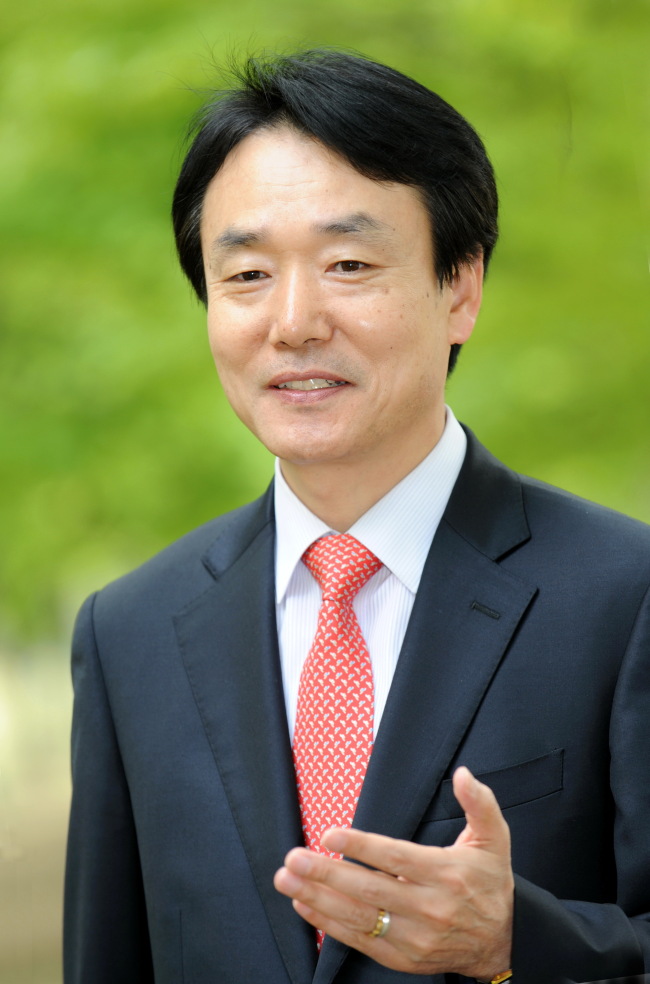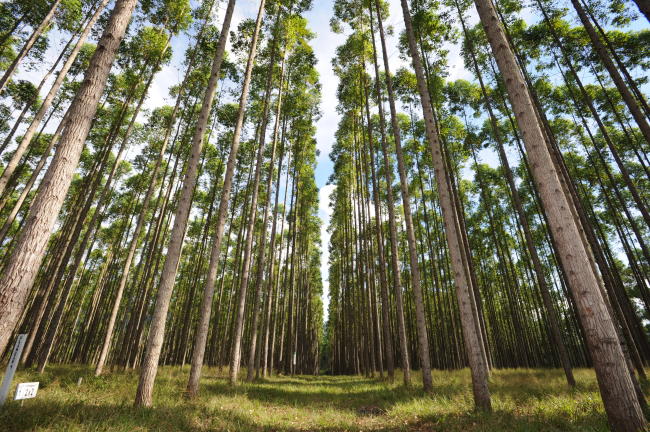The Korea Forest Service will lumber 300 hectares of trees per year in Indonesia starting from 2016 to produce wood pellets for fuel in a forest biomass project to foster Indonesia’s energy industries and cope with climate change.
The forest maintenance agency outlined the plan at a two-day international symposium on forest biomass held in Semarang, Indonesia, since Wednesday, where it presented the Korean government’s policy on forestry and its investment in forest plantation in foreign countries.
During the symposium, the two countries shared their plans on forest policy and biomass market and shared business plans regarding forest biomass for reforestation and other uses.

KFS Deputy Minister Kim Yong-ha said that participants also discussed sharing information on forest biomass and ways to develop forest businesses.
Attending the symposium were representatives from the Korea Green Promotion Agency, the Indonesian Ministry of Environment and Forestry, Indonesian state-owned forest enterprise Perum Perhutani and private Korean businesses.
The Korean government agency entered the forest biomass business in 2009 after signing a memorandum of understanding with Indonesia to foster energy industries.
Biomass is a biological material derived from living or recently living organisms. KFS’ forest biomass project in Semarang is designed to produce wood pellets for fuel to help with climate change.
“We decided to be prepared for the increase of forest biomass as the Renewable Portfolio Standard took effect,” he told The Korea Herald.
The Renewable Portfolio Standard, which came into force in 2012, requires Korean electric companies to produce a certain ratio of electricity from new and renewable energy sources, driving up demand for forest biomass energy.
The KFS’ forest biomass business consists of growing Gliricidia trees. Kim explained that Gliricidia, which are small trees, can be harvested two to three years after planting for wood pellet production.
After harvesting, the Gliricidia trees will reproduce through a method called short rotation coppice, where new shoots grow out of tree stumps and grow back into a full-sized tree in a few years, allowing continuous harvest.
“The business will be 1,000 hectares large, and we will lumber 300 hectares starting from 2016, producing 15,000 tons of wood pellets,” Kim said. “Considering that the average household with wood pellet boilers use about 4 tons of wood pellets in the winter, it produces enough for 3,750 homes to keep their houses warm.”

Since 1993, around 30 Korean companies have invested in overseas forests across 13 countries including Indonesia, Uruguay and New Zealand, totaling over 372,000 hectares of overseas forests, which is about six times the size of Seoul.
Kim said that the KFS plans to expand the overseas reforestation area to 1 million hectares, and will continue to support areas of investment to vitalize the overseas resource development business.
“We plan on bolstering forestry cooperation with Central and South American countries that have huge resource potential and fortify research, consulting and loans regarding overseas reforestation business,” he said.
By Sang Youn-joo and Lee Kwon-hyung (sangyj@heraldcorp.com) (kwonhl@heraldcorp.com)







![[Graphic News] More Koreans say they plan long-distance trips this year](http://res.heraldm.com/phpwas/restmb_idxmake.php?idx=644&simg=/content/image/2024/04/17/20240417050828_0.gif&u=)
![[KH Explains] Hyundai's full hybrid edge to pay off amid slow transition to pure EVs](http://res.heraldm.com/phpwas/restmb_idxmake.php?idx=644&simg=/content/image/2024/04/18/20240418050645_0.jpg&u=20240419100350)





![[From the Scene] Monks, Buddhists hail return of remains of Buddhas](http://res.heraldm.com/phpwas/restmb_idxmake.php?idx=652&simg=/content/image/2024/04/19/20240419050617_0.jpg&u=20240419175937)

![[KH Explains] Hyundai's full hybrid edge to pay off amid slow transition to pure EVs](http://res.heraldm.com/phpwas/restmb_idxmake.php?idx=652&simg=/content/image/2024/04/18/20240418050645_0.jpg&u=20240419100350)

![[Today’s K-pop] Illit drops debut single remix](http://res.heraldm.com/phpwas/restmb_idxmake.php?idx=642&simg=/content/image/2024/04/19/20240419050612_0.jpg&u=)